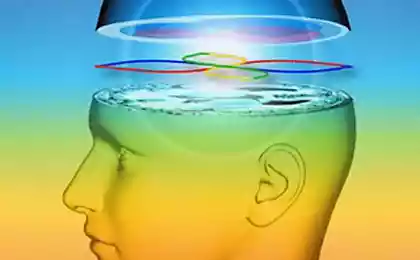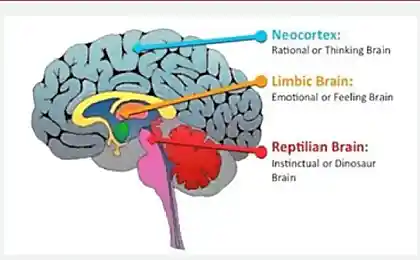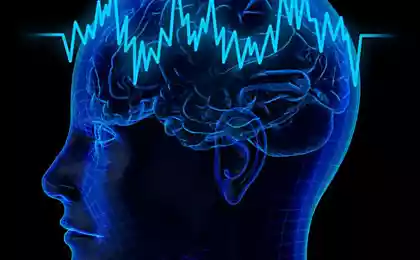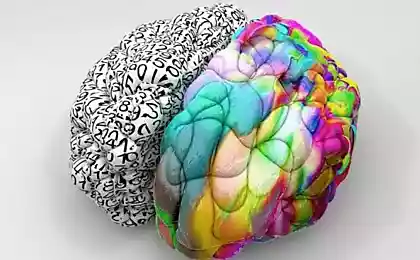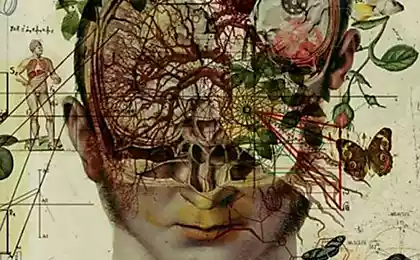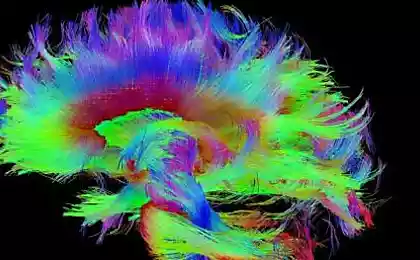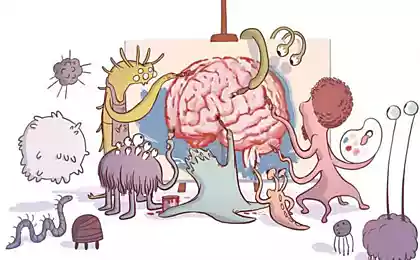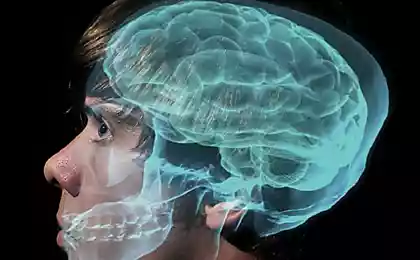397
Hormonal contraceptives can affect the structure of the brain women
Twenty five million six hundred forty thousand four hundred twenty seven
Choosing the right birth control pills is not easy, not least because the side effects can be both minor and very serious.
To use the tablet easily, and its effectiveness is undisputed, however, it can affect physical and emotional well-being and even the nervous system. According to a recent study, whose results were published the journal Human Brain Mapping, hormonal contraceptives may affect the structure of a woman's brain, namely, the orbitofrontal cortices and the back singulyarnoi sulcus limbic lobe of the brain.
The human brain responds to circulating the body's hormones. These hormones have a strong influence on the brain and nervous system, and, moreover, play an important role in the development and functioning of the brain. Estrogen affects the hippocampus, which is responsible for long-term memory and orientation in space. The hippocampus receives estrogens and androgens from cholesterol coming from the bloodstream.
This helps to explain the fact that women's memory is different from men's. Experimentally proved that in women, usually in long-term episodic memory is stronger than sticking events, if they were verbal feature, that is was said, heard or recorded. Another form of episodic memory, visual-spatial, associated with images, visual images. Long-term memory in women, usually better because of more estrogen in their body and how they interact with the brain.
In the experiment, Nicole Petersen of the University of California at Los Angeles was attended by 90 women, 44 of whom took hormonal contraceptives and 46 no. We compared the thickness of cortex of their brain in its various departments. Studies have shown that two divisions of the brain, specifically in the area orbitofrontal area and back singulyarnoi furrow was thinner in women taking hormonal contraceptives than in women of the control group. However, it is impossible to conclude about the change in behavior of women taking hormonal contraceptives. Moreover, we should not take the study results as proof that the medication is causing thinning of the cerebral cortex. The researchers emphasize that it is unknown whether the cortex is thicker, if you stop the medication or will remain the same.
The findings of this study contradict previously obtained and published in 2010 in the journal Brain Research. It was stated that the mass of gray matter in some brain regions is greater in women taking hormonal contraceptives. The question of whether accompanied by the increase of mass of the gray matter of improving brain activity, there are also not compromised, and the results of the study also left a number of issues that require further study.
Anyway, Petersen insists on the role of estrogens in the brain, stating: "There is a lot of evidence that estrogen is important from the point of view of the growth of brain tissue." She and her colleagues intend to continue working in this direction and to conduct clinical trials of appropriate drugs to find out whether and how the dependence structure of the brain from taking the pill, and whether it is possible to track behavioral changes associated with changes in these parts of the brain. We can only assume that the changes in brain structure may be caused by taking synthetic hormones or natural hormones reduce as a result of taking hormonal contraceptives.published
P. S. And remember, only by changing their consumption — together we change the world! ©
Source: www.domrebenok.ru/blog/gormonalnye-kontratseptivy/
Choosing the right birth control pills is not easy, not least because the side effects can be both minor and very serious.
To use the tablet easily, and its effectiveness is undisputed, however, it can affect physical and emotional well-being and even the nervous system. According to a recent study, whose results were published the journal Human Brain Mapping, hormonal contraceptives may affect the structure of a woman's brain, namely, the orbitofrontal cortices and the back singulyarnoi sulcus limbic lobe of the brain.
The human brain responds to circulating the body's hormones. These hormones have a strong influence on the brain and nervous system, and, moreover, play an important role in the development and functioning of the brain. Estrogen affects the hippocampus, which is responsible for long-term memory and orientation in space. The hippocampus receives estrogens and androgens from cholesterol coming from the bloodstream.
This helps to explain the fact that women's memory is different from men's. Experimentally proved that in women, usually in long-term episodic memory is stronger than sticking events, if they were verbal feature, that is was said, heard or recorded. Another form of episodic memory, visual-spatial, associated with images, visual images. Long-term memory in women, usually better because of more estrogen in their body and how they interact with the brain.
In the experiment, Nicole Petersen of the University of California at Los Angeles was attended by 90 women, 44 of whom took hormonal contraceptives and 46 no. We compared the thickness of cortex of their brain in its various departments. Studies have shown that two divisions of the brain, specifically in the area orbitofrontal area and back singulyarnoi furrow was thinner in women taking hormonal contraceptives than in women of the control group. However, it is impossible to conclude about the change in behavior of women taking hormonal contraceptives. Moreover, we should not take the study results as proof that the medication is causing thinning of the cerebral cortex. The researchers emphasize that it is unknown whether the cortex is thicker, if you stop the medication or will remain the same.
The findings of this study contradict previously obtained and published in 2010 in the journal Brain Research. It was stated that the mass of gray matter in some brain regions is greater in women taking hormonal contraceptives. The question of whether accompanied by the increase of mass of the gray matter of improving brain activity, there are also not compromised, and the results of the study also left a number of issues that require further study.
Anyway, Petersen insists on the role of estrogens in the brain, stating: "There is a lot of evidence that estrogen is important from the point of view of the growth of brain tissue." She and her colleagues intend to continue working in this direction and to conduct clinical trials of appropriate drugs to find out whether and how the dependence structure of the brain from taking the pill, and whether it is possible to track behavioral changes associated with changes in these parts of the brain. We can only assume that the changes in brain structure may be caused by taking synthetic hormones or natural hormones reduce as a result of taking hormonal contraceptives.published
P. S. And remember, only by changing their consumption — together we change the world! ©
Source: www.domrebenok.ru/blog/gormonalnye-kontratseptivy/

